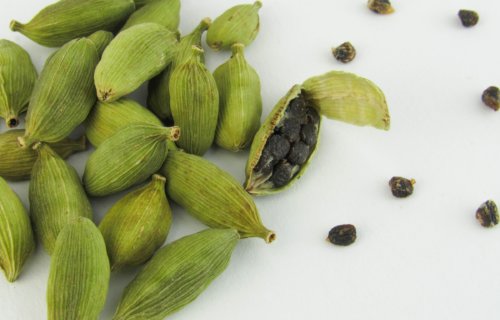PHILADELPHIA, Pa. — Cardamom is a spice used in different cuisines throughout the world. Now, a new study finds a substance in this common cooking ingredient may also help defeat one of the most aggressive and lethal forms of breast cancer.
Researcher Patricia Mendonca from Florida A&M University says cardamonin — a natural compound in the spice and other plants as well — is capable of destroying triple-negative breast cancer cells. In experiments with human cells, cardamonin also targeted a specific gene which helps cancer avoid the immune system.
What is triple-negative breast cancer?
Between 10 and 15 percent of breast cancers are triple-negative. This means patients don’t have receptors for estrogen or progesterone and make little to no HER2 protein. Lacking all three makes it incredibly hard to treat these tumors because they don’t respond to common hormone-based therapies.
Moreover, triple-negative breast cancer is much more aggressive, leading to a higher mortality rate in these cases.
“It has been challenging to develop a targeted therapy for triple-negative breast cancer that is safe and effective at the same time,” says Mendonca in a media release. “Because of this, there is a critical need to investigate medicinal plants as a new way to combat this cancer.”
“The fact that cardamonin has been used for centuries as a spice and, more recently, as a supplement shows that its intake is safe and may bring health benefits,” the study author adds. “Our research shows that cardamonin holds potential for improving cancer therapy without as many side effects as other chemotherapeutic agents.”
How does cardamonin help?
Using cells from both Caucasian and African American women, researchers examined how the spice compound affected the programmed cell death ligand 1 (PD-L1) gene in triple-negative tumor cells. In patients with breast cancer, PD-L1 is too active, helping the disease to bypass the human immune system.
Results show cardamonin treatments lowered the cancer cells’ ability to survive in both Caucasian and African American cell lines. The impact of cardamonin was also dependent on the dose researchers used.
Mendonca’s team also found cardamonin treatments reduced the expression of the PD-L1 gene in the cancer cells from Caucasian women. Unfortunately, the same did not occur in African American cell samples.
“This is the first study to describe cardamonin’s inhibitory effect on the expression of PD-L1, which is relevant for the treatment of triple-negative breast cancer,” Mendonca concludes. “These findings add support to other research that has shown differences in the tumor microenvironment between African and non-African Americans.
The findings were presented at the Experimental Biology (EB) 2022 meeting.

